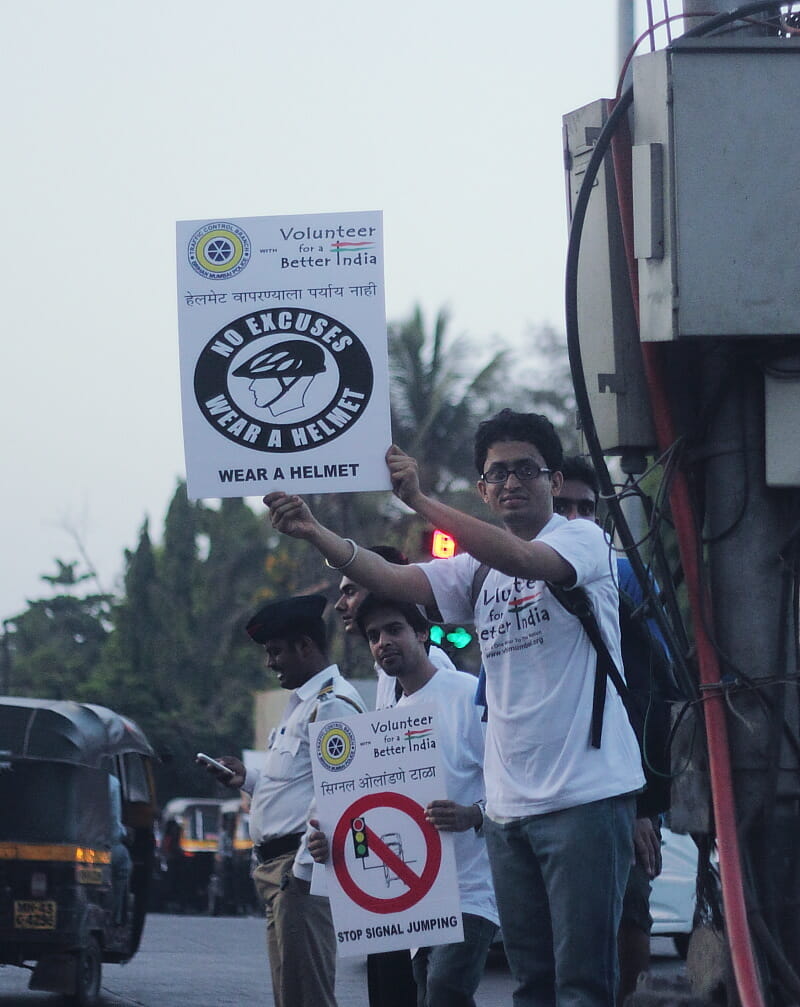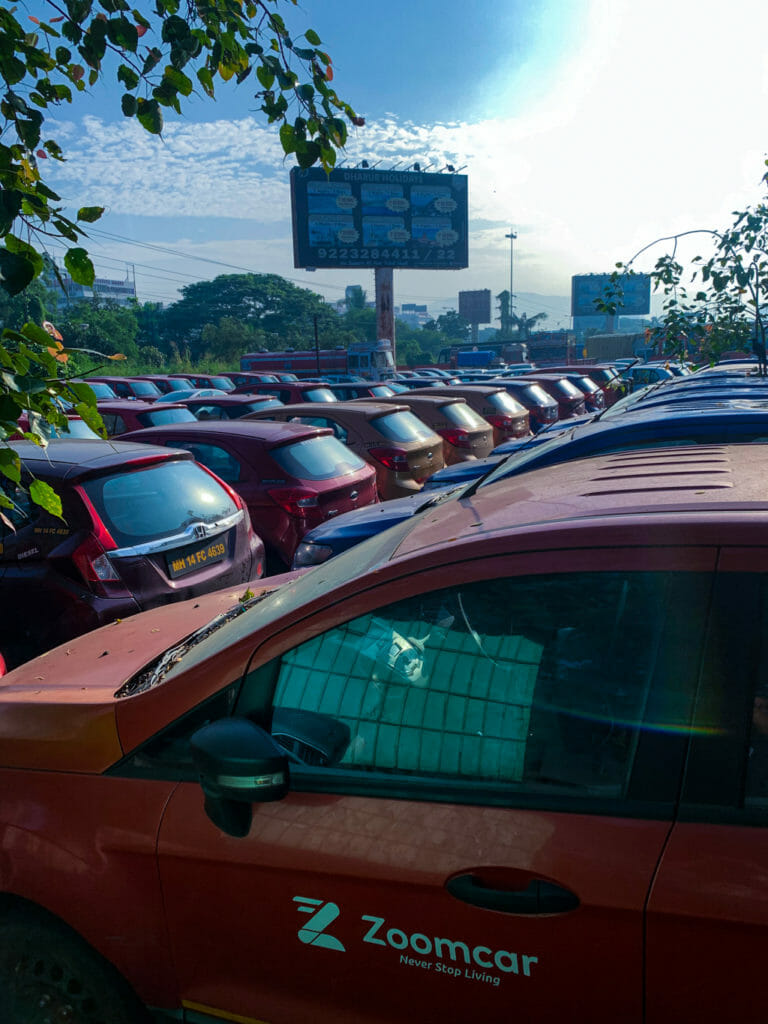Everyone in Mumbai has an anecdote about their time on the road; a pothole on a speed breaker, complete journeys done in first gear, magically cleared roads at the arrival of a VIP, and so on. Some of these stories of frustration and rage poured out in the Twitter Spaces event, organised by Citizen Matters, “Stuck on the road: The causes and fixes to traffic in Mumbai.”
Held on September 13th, Citizen Matters invited citizen groups, experts, researchers and concerned Mumbaikars to share their two cents on how to address congestion in the city. With panellists well versed in diagnosing and tackling the issue, the discussion brought a comprehensive analysis and a host of solutions to the fore.
One of the panellists was transport expert Dhawal Ashar, senior manager of the integrated transport team at the World Resources Institute (WRI). The others were Jeet Mashru and Reshma Doshi, representing Roads of Mumbai, a social media portal documenting road issues, and Mumbai North Central District Forum (MNCDF), a citizen activist group, respectively.

A complicated issue
The discussion began with a dissection of the problem of traffic congestion in Mumbai. Is it the number of vehicles on the road, which the moderator Eshan pointed out was around 42 lakh in March 2022? Does the blame lie on inadequate road infrastructure, constantly under the brunt of construction? Is the reduction of commuters in BEST buses from the 1990s to today a cause or symptom of the issue?
Yes, to them all, echoed the panellists in response.
“It’s not just one thing,” said Jeet. “A lot of complex issues come together in congesting and choking the city.”
A central factor is a shift towards automobile dependency. While most of the population walks or travels by trains or buses, building roads only attracts more cars, remarked Dhawal. And yet, despite the high investment in road infrastructure, the quality of the roads is called into question every monsoon. Having many agencies in charge enables them to pass the buck and shirk responsibility.
The fallout is borne by everyone, including pedestrians, public transport commuters and vehicle drivers.

The fixes
Just as there is no one cause, there is no one solution to the trouble of traffic in Mumbai.
Small incremental steps, such as well-planned and visible speed breakers will improve and make roads safer. An early pothole detection system is key to preventing the potholes that pop up every monsoon. Design changes have proved to make quick work of regulating traffic, leaving the traffic police to do the enforcing of rules. A congestion tax, for private vehicles entering crowded areas, could spark the shift away from vehicle dependency.
Massive infrastructural upgrades, like the metro, are needed but are not enough. The metro, whose ongoing construction is a burden today, will improve the commute for many in the future. Though, last-mile connectivity will be crucial in deciding its success.
Many in the audience pitched in with suggestions, based on their experience on the ground. Camps teaching proper driving behaviour were one of them. Another recommended the Motor vehicle laws be amended to encourage carpooling. There is no good reason to place drains, gutters, and water chambers in the middle of roads said a listener, and have them at a different level from the road.
Read more: How citizens can fight for road infrastructure in the city
Three principles to tackle traffic in Mumbai, as told by Dhawal
- Complete the network
New and improved roads will not improve the situation, unless and until the connectors between those roads can handle the load brought on by them. - Multiply the capacity of the preexisting roads to move more people, faster
Ways to do this: smarter signals, ramp up public transport, disallow on-street parking, keep roads contiguous/of uniform width, etc. - Build complete streets
Roads should be accessible for all, including pedestrians and cyclists. After all, over 50% of trips in Mumbai are done on foot.
Ensuring accountability
Although the topic often causes road rage, the discussion ended on a hopeful note.
Civic activism especially on Twitter is evidence that citizens are angry about ever-persisting issues, and are taking action against them. Holding authorities accountable is the citizens’ responsibility, said Reshma. “While the onus lies on the municipality to plan infrastructure, and give us better roads, we as citizens lack good driving etiquette,” she added. She called for greater involvement of citizens through civic groups and social media campaigns.
Many of the solutions too, it was pointed out, are widely regarded and accepted by governmental authorities. It is only with implementation, accountability, awareness and participation of citizens that our city’s problems can be resolved.
You can listen to the full session here.